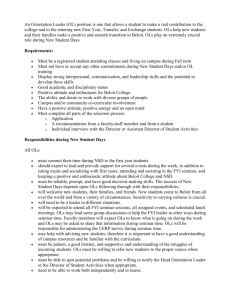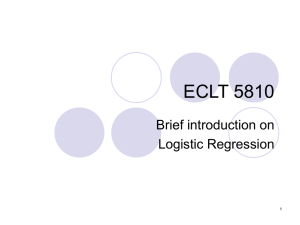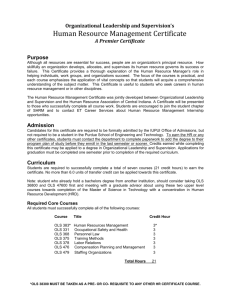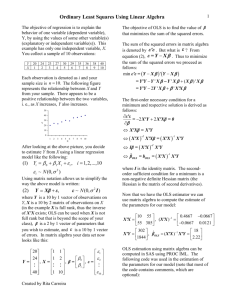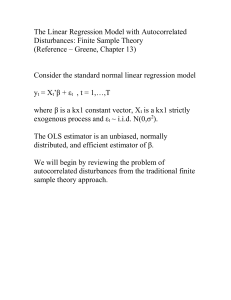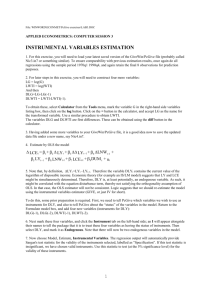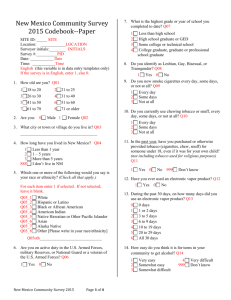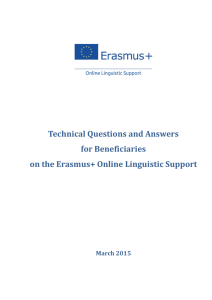Erasmus+ 2014, On-line language report (OLS), FAQ, november
advertisement
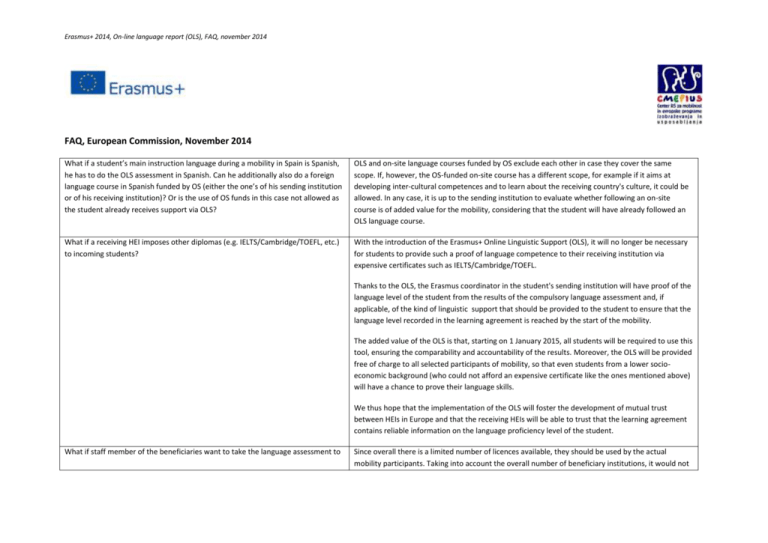
Erasmus+ 2014, On-line language report (OLS), FAQ, november 2014 FAQ, European Commission, November 2014 What if a student’s main instruction language during a mobility in Spain is Spanish, he has to do the OLS assessment in Spanish. Can he additionally also do a foreign language course in Spanish funded by OS (either the one’s of his sending institution or of his receiving institution)? Or is the use of OS funds in this case not allowed as the student already receives support via OLS? OLS and on-site language courses funded by OS exclude each other in case they cover the same scope. If, however, the OS-funded on-site course has a different scope, for example if it aims at developing inter-cultural competences and to learn about the receiving country's culture, it could be allowed. In any case, it is up to the sending institution to evaluate whether following an on-site course is of added value for the mobility, considering that the student will have already followed an OLS language course. What if a receiving HEI imposes other diplomas (e.g. IELTS/Cambridge/TOEFL, etc.) to incoming students? With the introduction of the Erasmus+ Online Linguistic Support (OLS), it will no longer be necessary for students to provide such a proof of language competence to their receiving institution via expensive certificates such as IELTS/Cambridge/TOEFL. Thanks to the OLS, the Erasmus coordinator in the student's sending institution will have proof of the language level of the student from the results of the compulsory language assessment and, if applicable, of the kind of linguistic support that should be provided to the student to ensure that the language level recorded in the learning agreement is reached by the start of the mobility. The added value of the OLS is that, starting on 1 January 2015, all students will be required to use this tool, ensuring the comparability and accountability of the results. Moreover, the OLS will be provided free of charge to all selected participants of mobility, so that even students from a lower socioeconomic background (who could not afford an expensive certificate like the ones mentioned above) will have a chance to prove their language skills. We thus hope that the implementation of the OLS will foster the development of mutual trust between HEIs in Europe and that the receiving HEIs will be able to trust that the learning agreement contains reliable information on the language proficiency level of the student. What if staff member of the beneficiaries want to take the language assessment to Since overall there is a limited number of licences available, they should be used by the actual mobility participants. Taking into account the overall number of beneficiary institutions, it would not Erasmus+ 2014, On-line language report (OLS), FAQ, november 2014 see what it is like to be able to answer questions from the students? be possible to ensure equal treatment. To facilitate the communication on OLS, please have a look at the PPT, which contains screenshots of both OLS assessments and language courses. What if a blind participant wants to go on an Erasmus+ mobility? Can they take the assessment and language courses? The public website, the OLS assessment and language courses, have been designed with all interfaces being available without the need of having Flash installed, in order to be readable by special browsers for visually impaired users. The website also presents a functionality to increase the text size. However, blind participants could be offered alternative solutions for language assessment and courses by their sending institution. What if the student will follow courses in two languages? If it is possible to get licences only for one language, does it matter which for language the licences will be awarded? e.g. The student is studying in German and English during his/her Erasmus mobility. Can they decide themselves for which language they would like to attend the online linguistic assessment and courses? Each participant can only receive one OLS licence per mobility, even if the HEI has spare licences. Students should always receive the OLS licence for the language that will be the main language of study during the mobility i.e. the main language agreed in the learning agreement. If students are in the situation that during their mobility they will be using two languages for their studies to the same extent, it is up to the sending institution to decide in which of the two languages the student should be assessed via the OLS.
